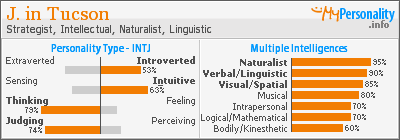'Flat world'...and I'm going to the other end of it...
Recently, I finally got around to reading The World is Flat, by New York Times columnist Thomas Friedman. With all of the buzz around it for the past few years, I was hoping it wasn't overrated. It's not. You should check it out.
Anyway, as an example of our 'flat world,' I came across the following: a Chinese KFC commercial spoofing a Korean television drama. (More on the drama below...) Ignore the 'label' on the video below--in spite of the Korean clothing, this is a CHINESE KFC commercial:
So, evidently, a few years ago, KFC in China was offering a crispy chicken sandwich, topped with kimchi (!) and a spicy Korean red pepper sauce. This was either during or shortly after "Jewel in the Palace," or " Dae Jang Geum" was aired. (disponible: información en español!--"La Joya en el Palacio")
Friends of ours from Seattle to South Carolina have watched this...It aired in places as diverse as Peru, Iran, Guatemala, Taiwan, Bosnia, Hawaii, Russia and Nigeria! This is part of "Hallyu," or 'the Korean Wave,' evidently. (All this was new to me.) My wife and I began watching it via Netflix...then when the available episodes ran out, we found a website that was rebroadcasting them, although the English subtitles were badly translated from Chinese-dubbed episodes!. (There are dozens and dozens of episodes!)...Alas, copyright issues must have come up, because before finishing the series, we could no longer access the episodes! My wife and I are 'cliff-hanging...'
Yes, we became surprisingly engrossed in the series, as far as we could watch it. It's hard to explain it--(read the links)--but think "Iron Chef" meets "Dr. Quinn Medicine Woman" in medieval Korea, with the colorful costumes and palaces to go with it, elaborate hair-dos and court ritual, court intrigue...but all wrapped in an almost didactic series of surprisingly clean stories that promulgate Confucian principles, and are somehow still suspenseful! Unlikely sounding, eh? But it was fabulously successful...Oh--AND it's based on historical fact! (Loosely.)
The series even has sprouted (?...or is 'spawned' better? that sounds negative, though....) a theme-park north of Seoul!
And the park is on our itinerary.
Yes. Itinerary.
At the end of May, I will be flying to Korea for the first time in eighteen years. The plan is that my wife will join me a couple of weeks after that, and then we'll fly back to the States together toward the end of June. My mother will be there at the same time, staying for several weeks, visiting her one brother (older with ailing health) who still lives there. All of this came together only about a week ago...and I can definitely say that the days of cheap trans-oceanic plane tickets are gone!
So. Korea. I was born in Seoul, but my family left before my first birthday. I went back to visit when I was seven, fourteen, and eighteen years old. That last trip was bittersweet--I was able to see my grandmother once more before her death; with some other relatives, we sat around her as she took her last breaths, at home, peacefully. I've not been back since.
The uncle we will be visiting lived for a while in Wisconsin, then Chicago...but he couldn't get good, affordable health insurance (!) in this country, so back across the Pacific he went. I've not seen him in fourteen years.
My mother was the youngest of eight children. There were three sisters and four brothers before her. The oldest sister and the first and third brother have already passed away. As I do not have siblings (my younger sister died when I was only 2), I've often wondered, over the past few years as these relatives have died, how my mother must feel--what is it like to lose your siblings, the ones who shared your upbringing?...And then there were five...Her third brother died a few months ago--she'd hoped to see him one last time...And so I strongly encouraged my mother to go NOW to see her other brother, before...
I need to go too.
An African proverb has been running through my head the past few months:
quand un vieil homme meurt, c'est toute une bibliothèque qui brûle.
--roughly translated: when an old man dies, it's like a library burns down.
There are libraries I've missed, and I don't want to miss more.
But these libraries are in a language in which I have never, alas, become fluent! ARGH! I spent years learning French, then Spanish...flirting with German...with Korean always on 'the list,' but not yet mastered. I'd studied the language on and off on my own, and then in grad school I was even able to take a whole year's worth of Korean classes. Like most university classes, they concentrated on the written aspect of the language. My instructor was enthusiastic and patient, though--herself a grad student, from Korea. I learned a lot, but ease of conversation was not the final outcome of those three short quarters. Besides, after that series of classes, I immediately went to live in France for a year...and then a few years after that, my wife and I plunged into Spanish and trips to Latin America, ending up with our year of living in Nicaragua...
Now, after almost two decades, it's back to the East.
I have a month to cram as much new language into my brain as I can, and to resurrect what I already do know--one day, my mother's tongue may well become my own. I know it won't happen within the next couple of months, but it's a start.
A few libraries remain...




